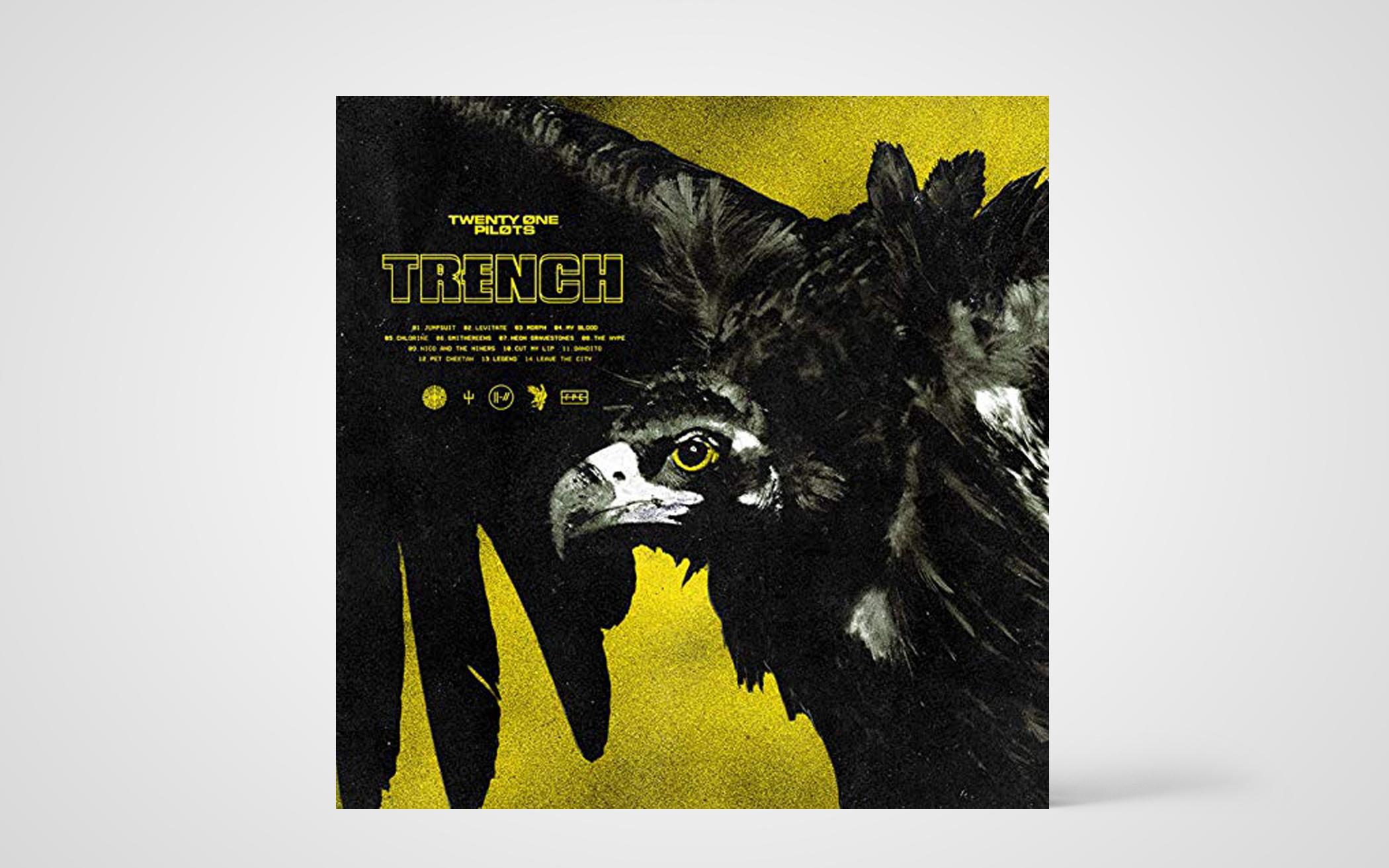Twenty One Pilots have built a reputation on musical eclecticism and their candor in discussing mental health. Fans of the Columbus, Ohio, band—the most extreme of whom frequent online boards dedicated to the duo on platforms like Reddit and refer to themselves as the “Skeleton Clique”—find solace in singer Tyler Joseph’s lyrics. He imagines worlds and characters to house his anxieties and insecurities, like Blurryface, his alter ego and the namesake of the band’s 2015 breakthrough album. These lyrics are brought to life with the propulsive drumming of Josh Dun and pronounced versions of reggae, rap, rock, and pop—often all within the same song.
This remains true on their new album, Trench—an album that continues, revises, and improves upon much of what the band was doing on Blurryface.
The music on Trench is more restrained than the band has ever been. The broad range of genres and influences of past works are still present, but Twenty One Pilots are more patient in their songwriting; they are not trying to fit every inspiration they have into every song on the album. Songs like “Morph” and “My Blood” remain lean, steady, and focused as they build to two of the catchiest choruses they’ve ever written.
Trench is on the whole more conceptual than Blurryface. Its lyrics and supplemental website tell the story of a character named Clancy who—with the help of a jumpsuit-clad renegade group called The Banditos—escapes the confines of the walled city Dema and the nine bishops who rule over it. The nine bishops (the niners) are led by Nico, who, as confirmed by Joseph, is Blurryface, the character from the previous album.
Trench, with its layered, multimedia presentation, has all of the makings of an Important Album—a collection of songs that work together to Say Something about the world. Though the themes are similar to Joseph’s past writing, the imagery and setting are more distinctly dystopian. Like other dystopian works, various institutions—government, religious order—are exaggerated to totalitarian degrees. In the trilogy of music videos the band released set in Joseph’s created world, the bishops (who look something like Darth Sidious wearing Handmaid’s Tale costumes) use religion to maintain control over the people in their walled city. A stark-grey city and a lifeless theocracy are constantly contrasted with the deep-green and wild freedom of The Banditos.
But Twenty One Pilots and Trench don’t really have much to say to the world outside the one they have created for themselves. The music of Twenty Pilots is from and for the suburbs, where external stability does not always mean internal stability. As an entity, Twenty One Pilots are intentionally insular, adept at communicating with their passionate fanbase but mostly uninterested in engaging with anything outside that space.
They are, however, eager to borrow from any and all aesthetics to bolster the importance of their work. They desire the immediacy and liberating feeling of genres like hip-hop and reggae or dystopian imagery, but do not seem to care about why those genres came to be. These art forms and aesthetics are political in the broadest sense of the word; cultivated and created out of a recognition and concern for the disparity in which people experience the world. At the end of the video for “Nico and the Niners,” two young kids in Dema find a jumpsuit left behind by The Banditos. In the dystopian context, it suggests revolution—a spark in the present meant to change the future. But in the context of Twenty One Pilots, it feels more like an ad to fans suggesting they should buy a jumpsuit and wear it to one of the dates on their Banditos arena tour.
Trench is effective pop music that speaks life into lonely spaces—both external and internal—that may not otherwise receive such care. It is also an album that props itself on weighty images and aesthetics without shouldering any of the burden that bore those images. It’s an album that dresses itself in the language of the political made by a group whose definition of politics allows them to see their work as apolitical.
The way we consume pop culture is largely built on a similar divide. If an engaging young adult series with poignant criticisms on social stratification and consumerism catches fire, as the Hunger Games did, it is only a matter of time before, as has happened in Dubai, it is turned into a theme park where you can purchase hundred-dollar tickets, buy a $50 T-shirt or a $35 plastic souvenir cup. I don’t solely blame Twenty One Pilots for this divide, but we only get so long with something before the point is completely lost, and I’m not sure they’re helping. (Fueled by Ramen)
About the Author
Jordan Petersen

